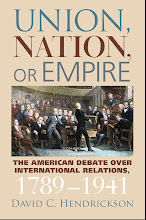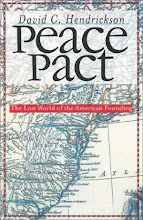“When a woman thinks that her house is on fire, her instinct is at once to rush to the thing which she values most. It is a perfectly overpowering impulse, and I have more than once taken advantage of it. . . . A married woman grabs at
her baby; an unmarried one reaches for her jewel-box.”-- A Scandal in Bohemia, by Arthur Conan DoyleWhen a central bank thinks its house is on fire, it too will rush to save the thing valued most. In the United States, the central bank has rushed to save the bonuses and dividends of its Wall Street clientele by hiding away the bad assets that can no longer be foisted on gullible investors. In Europe too the response of central banks has been to save the wholesale banking and securities industry rather than the consumers and businesses underlying the real economy’s longer term productive strength.
For a comparative of what is valued elsewhere, it is worthwhile to look at what is being saved. I received in my inbox yesterday documents outlining the efforts being taken by the Hong Kong and Chinese authorities to address the liquidity crisis in their respective jurisdictions. They are available online here (Hong Kong) and here (PRC). The contrasts with the West are striking, and humbling. Hong Kong is swiftly introducing a scheme to guarantee credit to SMEs (small and medium enterprises) and exporters. China is introducing controls to limit bank credit to over-extended speculative sectors, accelerate rebuilding in the regions affected by the earthquake earlier this year, and promote improvements in local infrastructure, education and economic adjustment.
Holmes would have been disgusted by a married woman who grabbed her jewel-box in preference to her baby. In the same way, I am disgusted by the central banks preserving the privileges of the financial elite in preference to the jobs, incomes and businesses powering the real economy. The US and UK authorities may criticise the banks for their inaction in freeing up lending to commercial businesses constrained by the credit crunch. The Hong Kong and Chinese authorities are
implementing guarantee schemes and innovating initiatives to rapidly address the problem. . . .The crisis in debt markets has been rolling since the sub-prime collapse of August 2007. The increasing illiquidity of commercial paper, trade credit, municipal finance and other debt markets was foreseeable and inevitable. And yet the central banks and treasury authorities of the Western nations have done nothing to shield these essential sectors from the ill effects of the financial sector implosion while giving virtually unlimited funds to the banks authoring the collapse.
Any discussion of China always invites criticism of its anti-democratic governance. It is worth remembering that the philosophical defense of democracy lies in the proposition that it is more likely over time to serve the interests of the electorate than a system which disenfranchises the people from the determination of their leadership. If the democratically elected governments - through their appointed executives and central bankers - are free over an extended timespan to ignore the interests of the people, then how is a Western democracy superior to a Chinese bureaucracy? From looking at the policies and practices of the past year, the merits of Western democracy are not immediately apparent in ensuring that policy responses to the financial crisis are aligned with the interests of the people. Even over the past decade, it is not clear that the policies of the democratic Western governments have aimed to strengthen and broaden the economy to benefit of the electorate rather than a narrow, self-serving elite. . . .
If the promoters of democracy want to strengthen their case, they might best do so by ensuring that their leadership adheres to policies which promote the longer term health and well being of the economy as a whole rather than the short term enrichment of an undemocratic elite."
11/28/08
Inheritance Compounds Genius: Do Not Demonize It
6 hours ago


